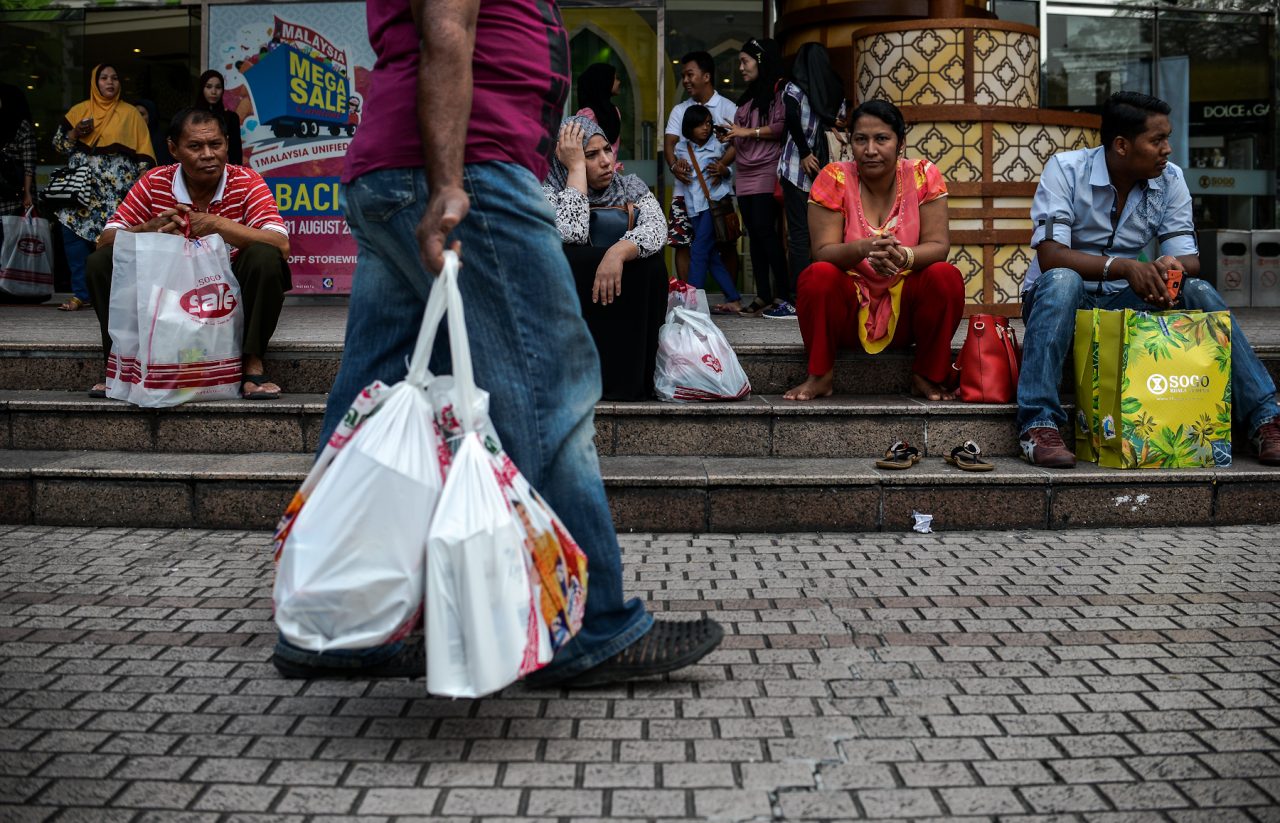
Sharp drop in spending on non-essentials
KUALA LUMPUR May 18 – Hari Raya Aidilfitri is barely a week away, and usually this is a very busy time for Muslim families as they put the finishing touches to the celebrations.
Jalan Tuanku Abdul Rahman and Jalan Masjid India in the heart of the city would be a hive of activity as people throng the shops there to buy clothes, delicacies and home decorations.
This year, however, the shopping scene is distinctly quieter as the Conditional Movement Control Order (CMCO) is in force from May 4 till June 9 and, as expected, Raya celebrations are going to be muted. The first day of Syawal this year falls on May 24.
Interestingly, the new normal Malaysians are adapting to amid the COVID-19 pandemic has not only led to a reduction in festive spending but also changed their spending habits in general.
According to senior lecturer at Universiti Kebangsaan Malaysia’s Faculty of Economics and Management Dr Norlin Khalid, a recent survey carried out by the Department of Statistics (DOS) revealed changes in household spending and consumption patterns during the Movement Control Order and CMCO period between March 18 and May 3.
She told Bernama based on its findings, spending on food, mainly involving raw cooking ingredients, rose by 27 percent to an average of RM924 per household from RM726 before the MCO was imposed.
Spending on clothes and home appliances per household fell drastically by 95 percent and 58 percent respectively. Spending on public and private transport, meanwhile, also saw a sharp 89 percent decline from RM553 per household (pre-MCO) to RM61.
The findings, pointed out Norlin, are not surprising as many people were staying at home and working from home as well during the MCO due to the restrictions on movements.
NO LAVISH SPENDING
“In fact, households are now spending more on health-related items like face masks and sanitisers,” she said, adding that she expected the new normal spending pattern to prevail even after Hari Raya is over.
During the fasting month, the absence of Ramadan bazaars and buffets at hotels and restaurants has forced many Muslim families to resort to eating home-cooked meals during the breaking of fast.
And, even though food delivery options and e-bazaars have mushroomed during the MCO and CMCO period, many households are opting against spending extravagantly on food.
“In the past, people used to spend lavishly at the various Ramadan bazaars and end up buying more food than they needed, which led to wastage. This time, however, there is no wastage of food,” observed Norlin.
She said in view of the quieter Raya celebrations – interstate travel is prohibited and visits are only allowed on the first day within the same state – Muslim households have cut down on their festive spending.
“The ‘new normal’ celebration is enabling them to save some money as they don’t have to spend so much on buying new clothes, giving out duit raya and preparing Raya delicacies for guests,” she said, adding that this is the time for households to set aside some cash as no one can tell how long the COVID-19 crisis will last.
SHREWD FINANCIAL PLANNING
Norlin said with the six-month moratorium on loans offered by banks and financial institutions, individuals with higher disposable income in their hands now should restructure their debt repayment plan in order to reduce their financial burden.
“What they can do is try to settle debts such as credit card balances and personal loans which charge a relatively higher interest rate. Once these debts reduce, it will be easier for the individual concerned to pay his other loans once the moratorium ends,” she explained.
She said the monthly savings as a result of the moratorium and the reduction of the overnight policy rate (OPR) by Bank Negara Malaysia to two percent can also be used as capital for business activities or to buy assets that can provide higher returns in the future.
Stressing on the need for shrewd financial planning, she said the latest data by DOS showed that the unemployment rate has gone up to 3.9 percent in April from 3.3 percent in March.
“This is why it’s important for households to spend prudently and only buy essentials, and save any excess money they have,” she added.
–BERNAMA


